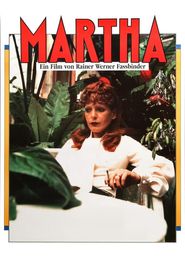Margit Carstensen, a celebrated German thespian, left an indelible mark on the world of theatre and cinema, with her remarkable acting prowess earning her widespread recognition beyond the borders of her native Germany.
Carstensen's life story commences on February 29, 1940, in the charming city of Kiel, Germany, where she spent her formative years. As a young individual, she attended the local high school, completing her secondary education in 1958. This milestone marked the beginning of her journey towards a career in the performing arts. Her passion for acting soon led her to enroll at the esteemed Hochschule für Musik und Theater Hamburg, where she honed her craft and laid the foundation for her future success.
Carstensen's formative years in the entertainment industry were characterized by her association with the esteemed German Playhouse in Hamburg, a tenure that spanned from 1965 to 1969, during which time she honed her craft and laid the groundwork for her future success. Following her stint in Hamburg, she transitioned to the Theater am Goetheplatz in Bremen, where she had the opportunity to collaborate with the renowned filmmaker Rainer Werner Fassbinder for the first time.
Carstensen's professional trajectory throughout the 1970s was marked by a continued collaboration with the illustrious German filmmaker Rainer Werner Fassbinder, during which she delivered a series of iconic performances in his cinematic endeavors, leaving an indelible mark on the world of cinema.
Her involvement in Fassbinder's projects resulted in standout roles in films such as The Bitter Tears of Petra von Kant, Martha, Fear of Fear, Mother Küsters' Trip to Heaven, Satan's Brew, Chinese Roulette, and Women in New York, cementing her status as a talented actress of her time.
This remarkable partnership with Fassbinder garnered Carstensen widespread acclaim, both within her native Germany and beyond, solidifying her position as a prominent figure in the international film community.
Carstensen's artistic endeavors extended far beyond the realm of film, as she concurrently nurtured a prolific career in the world of theatre. Her impressive stage presence was showcased in a diverse array of productions, featuring the works of renowned playwrights such as Henrik Ibsen and Carlo Goldoni. Furthermore, she made notable appearances in episodes of Fassbinder's critically acclaimed television productions, including the groundbreaking series "Eight Hours Don't Make a Day" and the iconic mini-series "Berlin Alexanderplatz".
Throughout the 1980s and beyond, Carstensen's illustrious career saw her collaborate with an array of esteemed directors, including the acclaimed Andrzej Żuławski, Agnieszka Holland, Werner Schroeter, Christoph Schlingensief, and Leander Haußmann, each of whom recognized and valued her remarkable talent.
Her remarkable adaptability and impressive range as a performer garnered her widespread recognition and earned her a reputation as one of Germany's most esteemed and respected actresses, a testament to her enduring impact on the world of cinema.
Carstensen's illustrious career has been marked by an abundance of prestigious accolades and honors, with a notable highlight being the German Film Awards, where she was bestowed with the coveted Gold prize in the year 1973.
In addition to this impressive achievement, Carstensen has also received the esteemed Bavarian Film Award in the year 2002, a testament to her enduring influence and impact on the film industry.
Furthermore, Carstensen's remarkable body of work has been recognized with the prestigious Götz-George-Preis, an award that honors her lifetime achievement in the field of acting, presented to her in the year 2019.
Carstensen's twilight years were characterized by a plethora of television appearances, with a notable role in the enduring and popular German crime series Tatort in the year 2016. This remarkable actress, whose remarkable career spanned many decades, left an indelible mark on the world of German cinema and television, passing away on June 1, 2023.




































